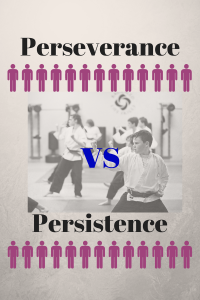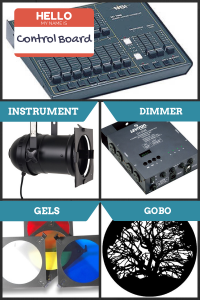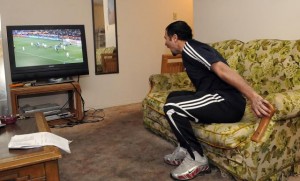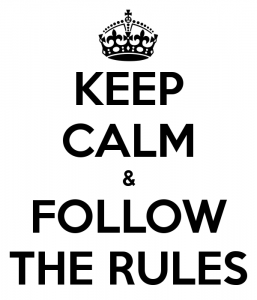 When I first looked at the word for this month, Persistence, I wondered to myself – ‘what is the difference between persistence and perseverance?’ Both seem to be about reaching a goal and the goal not coming easy. Both require discipline, focus and determination. I thought about it for hours, trying to determine how to deal with this subject with our students.
When I first looked at the word for this month, Persistence, I wondered to myself – ‘what is the difference between persistence and perseverance?’ Both seem to be about reaching a goal and the goal not coming easy. Both require discipline, focus and determination. I thought about it for hours, trying to determine how to deal with this subject with our students.
The first requirement for successfully reaching a goal is to have a goal, a purpose / mission that we are committed to and have a strong desire to reach.
Once we have a goal or chief aim in our mind we must have perseverance, because there will be things that come up that will block the easy path to that goal. We may get sick, not have the financial resources. We may get hurt or other situations may arise outside our realm of control that could easily make us believe that we cannot continue. It may seem that it is just not ‘meant to be’ due to these circumstances or events and therefore easy to give up. Perseverance is not allowing these outside forces dissuade us from pursuing our mission or specific goal.
Persistence is also needed but is far more internal. We may have a goal in mind that we believe in and want to accomplish, that while may be possible, may also be very difficult or require more time, energy or creativity than we expected. Persistence is the quality that keeps us going, even when others have given up. It is reexamining our motives and desires and pressing forward – to find the answer or accomplish the goal. Our desire is so strong that when one way of approaching the challenge does not work we do not give up – rather we look at it from a different point of view. Our desire to reach the goal continues to drive us even if the process become monotonous or even boring. Our internal drive does not stop.
There are times when perseverance and persistence no longer make sense and we need to adjust our goal in some manner. Most of the time though both of these character traits will help us accomplish our mission or purpose when put into practice in a balanced manner.





